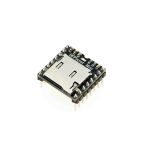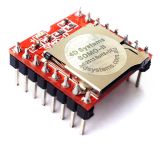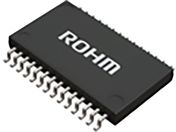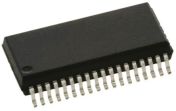Audio & Video Processors
An audio & video processor is an integrated chip that has been designed to enhance and clean up audio and video signals before they are transmitted.
How do audio and video processors work?
Audio processing is available in both digital and analogue. Analog converts a sound wave into an electrical signal. The signal looks like a sound wave and is processed with the least distortion. Digital audio processing converts an analogue audio signal into digital form. This is normally a binary code that can be interpreted by a computer. Digital alters the sound from a continuous wave to other information meaning the ear hears no difference in the sound.
Video processing uses signal processing to optimise video signals for a clear video stream. It has a variety of functions, including:
- Aspect ratio control - this ensures that the video image stays within the correct dimensions and doesn’t become distorted.
- Upconversion - this is the process of converting Standard Definition (SD) signals to HD quality.
- Lip sync - this feature ensures that audio-visual parts of a video are perfectly synchronised.
- Edge enhancement - a video processor will find the edges between a subject and its background and increase the contrast to create a clearer video image.
Applications of audio and video processors
Audio processors are widely used in applications such as:
- Storage
- Data compression
- Music information
- Transmission
Video processors have a variety of use in applications such as:
- DVD Players
- Televisions
- Blu Ray players
- AV Receivers




